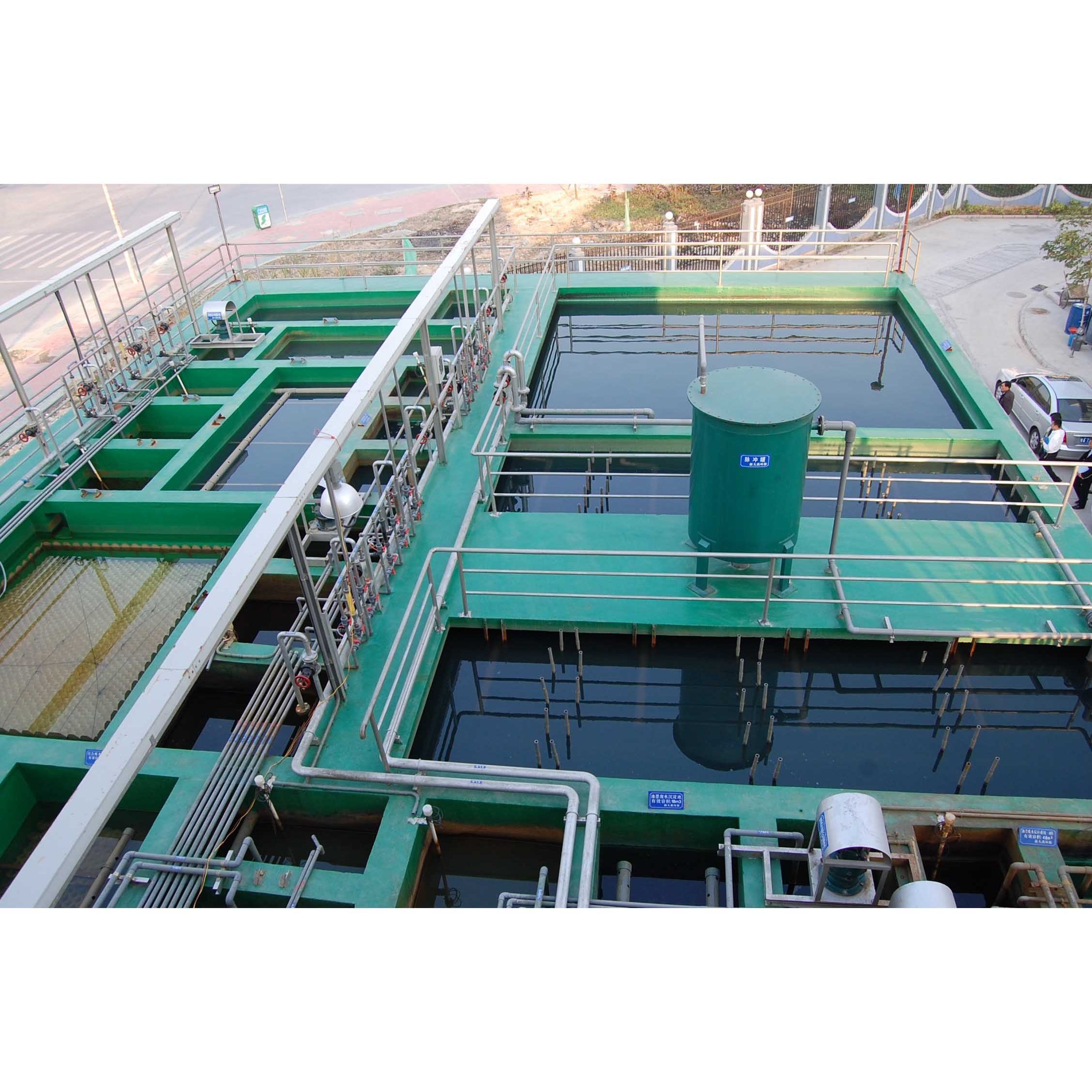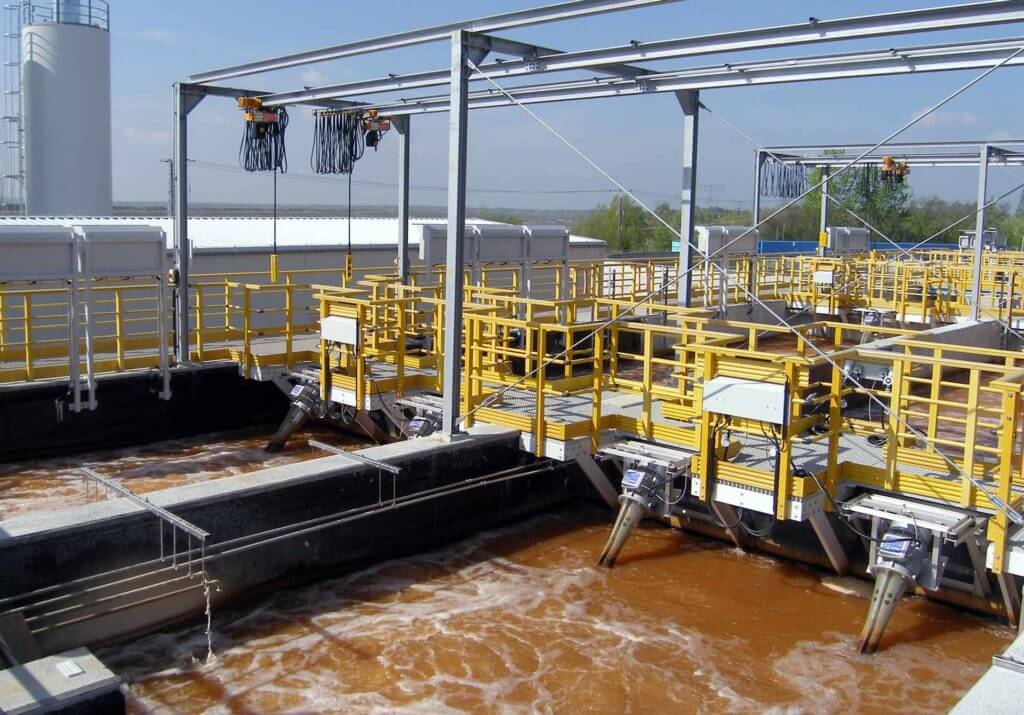Industrial Waste Water Treatment-- Advanced Solutions for Cleanser Effluents
Industrial Waste Water Treatment-- Advanced Solutions for Cleanser Effluents
Blog Article
The Function of Hazardous Waste Water Treatment in Environmental Management
The effective therapy of industrial wastewater is significantly recognized as a keystone of environmental defense, serving to minimize the harmful influences of pollutants on marine environments. As sectors develop and increase, the need for robust wastewater monitoring solutions ends up being paramount to guarantee conformity with ecological policies and promote lasting methods.
Value of Drainage Therapy
The significance of wastewater treatment can not be overemphasized, as it plays an essential function in shielding public health and the atmosphere (Industrial Waste Water Treatment). Efficient wastewater therapy systems are essential for removing pollutants from industrial discharge, consequently preventing hazardous materials from getting in natural water bodies. This process minimizes the risk of waterborne illness, which can develop from without treatment wastewater, and safeguards neighborhood health
Furthermore, treated wastewater can be safely reused in various applications, such as irrigation and industrial processes, advertising lasting water monitoring techniques. By reusing water, sectors can significantly reduce their freshwater consumption, adding to source preservation.
In addition to health and wellness advantages, wastewater therapy is vital for protecting water ecological communities. Pollutants in neglected wastewater can cause the destruction of water quality, harming aquatic life and interrupting eco-friendly equilibriums. By dealing with wastewater prior to discharge, industries help preserve the stability of regional ecological communities and advertise biodiversity.
In addition, regulatory compliance is a key aspect of wastewater management. Adhering to recognized environmental requirements not just prevents lawful effects yet additionally improves a business's track record as an accountable business resident. Fundamentally, efficient wastewater treatment is essential for guarding public health, securing the environment, and advertising sustainable commercial techniques.

Resources of Industrial Waste Water
Industrial wastewater originates from a range of resources, each adding to the complexity of treatment processes. Mostly, these resources include producing centers, refineries, and handling plants, which create effluents as a byproduct of their operations. Industries such as textiles, pharmaceuticals, food and drink, and petrochemicals generate substantial quantities of wastewater, frequently filled with contaminants consisting of hefty metals, organic compounds, and nutrients.
Along with manufacturing, agricultural activities add to industrial wastewater with drainage and effluent from animals procedures and plant handling. The meat and milk sectors, in certain, are recognized for launching high degrees of biochemical oxygen need (FIGURE) and virus.
In addition, mining and mineral handling tasks generate wastewater having put on hold solids and unsafe chemicals. Power generation plants, specifically those making use of nonrenewable fuel sources, likewise add wastewater with cooling systems and chemical cleaning procedures.
Each of these resources provides special difficulties relating to the structure and volume of wastewater generated, necessitating customized therapy options to reduce their environmental impact. Recognizing the varied origins of industrial wastewater is essential for creating efficient administration strategies intended at shielding water resources and promoting lasting industrial practices.
Therapy Procedures and Technologies
Effective therapy processes and technologies are essential for taking care of commercial wastewater and reducing its environmental effect. Numerous approaches are utilized to eliminate pollutants, adjust to various wastewater attributes, and adhere to regulatory standards.
Physical therapy processes, such as sedimentation and purification, help with the elimination of suspended solids. These approaches are commonly used as initial steps to lower the load on succeeding treatment phases. Chemical therapy, including flocculation, coagulation, and neutralization, addresses liquified pollutants by changing their Home Page chemical residential or commercial properties, making them less complicated to separate from water.
Biological therapy technologies, such as triggered sludge systems and biofilters, make use of microorganisms to break down raw material and nutrients. These techniques are specifically effective for naturally degradable waste streams, advertising the natural decomposition procedure. Advanced therapy technologies, such as membrane filtering and progressed oxidation procedures, deal enhanced removal effectiveness for tough toxins, including heavy metals and consistent natural substances.
Each of these therapy processes can be configured in different combinations to produce customized remedies that meet specific industrial demands. The option of innovation relies on variables such as the kind of wastewater, wanted therapy outcomes, and economic considerations, ensuring that markets can operate sustainably while lessening their environmental impact.
Ecological Benefits
Executing robust wastewater treatment processes not only ensures conformity with governing criteria yet additionally generates significant environmental advantages. Reliable treatment of industrial wastewater reduces the discharge of hazardous pollutants into all-natural water bodies, therefore securing water environments. By eliminating harmful substances, hefty steels, and microorganisms, these processes aid preserve biodiversity and promote healthier ecological communities.
In addition, treated wastewater can be repurposed for various applications, consisting of irrigation and industrial procedures, lessening the demand for fresh water sources. This reuse not just conserves water but additionally decreases the stress on neighborhood water materials, which is particularly crucial in water-scarce areas.
Furthermore, reliable wastewater treatment mitigates the threat of soil and groundwater contamination, ensuring the honesty of local settings. Industrial Waste Water Treatment. By avoiding the seepage of harmful substances, markets contribute to the general health of bordering communities and areas, enhancing public depend on and fostering sustainable commercial practices
Regulative Structure and Compliance
A detailed regulatory framework controls the treatment of industrial wastewater, making sure that industries comply with rigid conformity standards. Different nationwide and local policies, such as the Tidy Water Act in the USA, stated limits on the discharge of toxins right into water bodies. These regulations are created to shield aquatic communities and public health and wellness by mandating that sectors implement suitable therapy modern technologies.
Conformity with these regulations typically includes getting authorizations, performing normal monitoring, and reporting discharge levels to governing authorities. Failing to abide can result in significant charges, including fines and operational limitations, consequently incentivizing sectors to take a knockout post on ideal techniques in wastewater monitoring.
In enhancement to governmental regulations, many industries also follow volunteer criteria and certifications, such as ISO 14001, which advertise lasting ecological monitoring methods. Stakeholders are increasingly supporting for boosted openness and accountability in wastewater management, pressing for more stringent enforcement and more rigorous coverage demands.
Ultimately, a robust governing structure not only serves to minimize ecological dangers but additionally cultivates a culture of sustainability within the industrial field, urging constant improvement in wastewater therapy procedures.
Conclusion

The reliable therapy of industrial wastewater is significantly acknowledged as a cornerstone of ecological security, serving to alleviate the harmful impacts of contaminants on aquatic ecological communities. Efficient wastewater treatment systems are necessary for removing impurities from commercial discharge, thereby protecting against hazardous materials from going into all-natural water bodies.Industrial wastewater originates from a selection of sources, each contributing to the intricacy of treatment procedures. Effective treatment of commercial wastewater decreases the discharge of unsafe contaminants right into natural water bodies, thus shielding water ecological communities.In conclusion, commercial wastewater therapy is important for securing environmental stability and advertising lasting water management.
Report this page